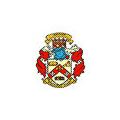Studies & Degrees in Biology
Choose where you would like to study Biology:
AlbaniaAlgeriaArgentinaArmeniaAustraliaAustriaAzerbaijanBangladeshBarbadosBelarusBelgiumBeninBermudaBosnia and HerzegovinaBotswanaBrazilBrunei DarussalamBulgariaCambodiaCanadaCentral African RepublicChadChileChinaColombiaCosta RicaCubaCyprusCzech RepublicDenmarkEcuadorEl SalvadorEstoniaEthiopiaFijiFinlandFranceGermanyGhanaGreeceGuatemalaGuyanaHong KongIcelandIndiaIranIraqIrelandItalyJapanJordanKyrgyzstanLaoLebanonLesothoLithuaniaLuxembourgMadagascarMauritaniaMauritiusMexicoMozambiqueNamibiaNepalNetherlandsNew ZealandNicaraguaNorwayOmanPakistanPalestinePeruPhilippinesPolandPortugalPuerto RicoQatarRomaniaRussiaSamoaSingaporeSloveniaSouth KoreaSpainSwazilandSwedenSwitzerlandThailandThe United KingdomThe United StatesTurkeyUkraineUnited Arab EmiratesUzbekistanVenezuelaVietnamVirgin Islands, U.S.ZimbabweBiology Study Programs
Biology, as implied from bio, which means life, is the study and science of living things. The term was actually coined by the Jean Baptiste de Lamarck, a French naturalist. He aimed to unify the various disciplines involving the study of life. Hence, Biology, the diverse science that the world now recognizes, was developed and it continues to evolve.
This program basically involves not only pure biology but also the other sciences as physics and chemistry. Mathematics also plays a huge part, as this body of knowledge finds infinitely many applications in these sciences. The Biology Program fits well for students who are inclined to the natural sciences and the wonders that can be achieved with efficient application of this knowledge.
The Biology Program integrates the wide scope of this body of knowledge and tackles its subdivisions, which were formulated from the hierarchy of life forms, from the fundamental units to the largest clusters. The main divisions are:
• Cellular Biology – concerned with “the fundamental building block of life”, the cell, which is the basic unit essential for life to exist. The discovery of the cell and its functions led to the understanding of life, its evolution, and even its future.
• Molecular Biology – the branch that includes assimilates biology with physics chemistry, which has facilitated the development of Genetics, including the crucial discovery of heredity.
• Organismal Biology – mainly from cellular and molecular biology, this branch views the object of study as a whole living form. In this branch, the functions of the cells and molecules and the interactions of each varied form are studied.
• Population Biology – a relatively young field, formally established in the 1970s, this division of Biology includes the study of evolution, genetic drifts, and gene flow, among others. It is also closely linked with Ecology and Anthropology, where the study of human behavior is focused on.
Aspiring medical students commonly take the Biology Program. Since Biology is so broad a science, it subsequently has an extensive range of applications. For one there is Biomedicine, which, as can be deduced from its name, is the fusion Biology and Medicine. In this area, the information gained from the study of the hierarchy of life is applied to find ways to preserve and sustain it.
Other emerging fields are Neuroscience and Genetic Counseling. The former involves a combination of Biology and Psychology, where the molecular biology is linked with the study and interpretation of behavior. The latter includes providing analysis and advice on matters of the health, especially those directly related to Genetics.
Apart from the abovementioned, there are numerous other areas where career opportunities available, like the academe, public health and environmental agencies, pharmaceutical companies, and industries that employ biotechnology as agriculture, among others. While some graduates choose to move on to start a career after completion of the Biology program, there are also some who opt to pursue Master’s or Doctorate degrees to further enrich their knowledge. There is, indeed, virtually an infinite range of available career opportunities with a Biology degree.




